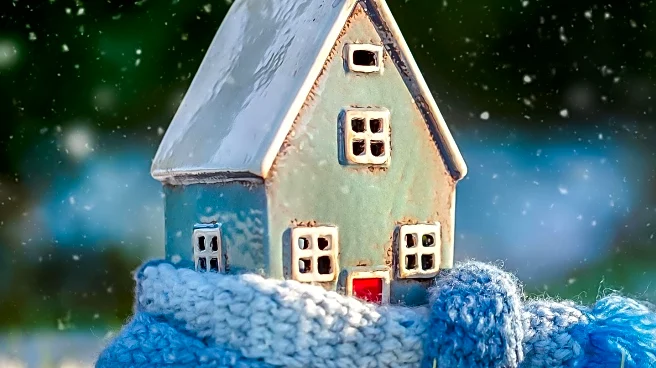What's Happening?
Consumer Reports has released a set of recommendations for homeowners to prepare their homes for the upcoming winter season. The advice includes insulating exposed copper or PVC pipes in various parts of the home, such as basements, attics, and crawl
spaces, to prevent them from bursting during cold weather. Additionally, homeowners are encouraged to inspect and improve attic insulation to retain heat and prevent ice dams on roofs, which can lead to expensive repairs. The report also suggests scheduling service appointments for chimneys, furnaces, or boilers to ensure they operate safely and efficiently. Outside the home, inspecting roofs for loose shingles, cleaning gutters, and checking trees for potential hazards are recommended to mitigate damage from winter storms.
Why It's Important?
Preparing for winter is crucial for homeowners to avoid unexpected and costly repairs. Insulating pipes and attics can significantly reduce energy bills and prevent damage from burst pipes and ice dams. Ensuring heating systems are serviced can prevent breakdowns during cold weather, which is vital for maintaining a safe and comfortable living environment. By taking these proactive steps, homeowners can save money and reduce the risk of damage to their property. This preparation is particularly important in regions prone to severe winter weather, where the consequences of neglecting these measures can be more severe.
What's Next?
Homeowners are advised to act promptly to implement these recommendations before the onset of winter. Scheduling inspections and repairs with professionals can ensure that homes are adequately prepared for the season. As winter approaches, homeowners should continue to monitor weather forecasts and be ready to address any additional issues that may arise. Consumer Reports emphasizes the importance of ongoing maintenance and vigilance to protect homes from the harsh conditions of winter.
Beyond the Headlines
The advice from Consumer Reports highlights the broader issue of home maintenance and the importance of proactive measures to prevent damage. This approach not only saves money but also contributes to the longevity and safety of homes. The recommendations serve as a reminder of the value of investing in home care and the potential long-term benefits of maintaining property integrity.















